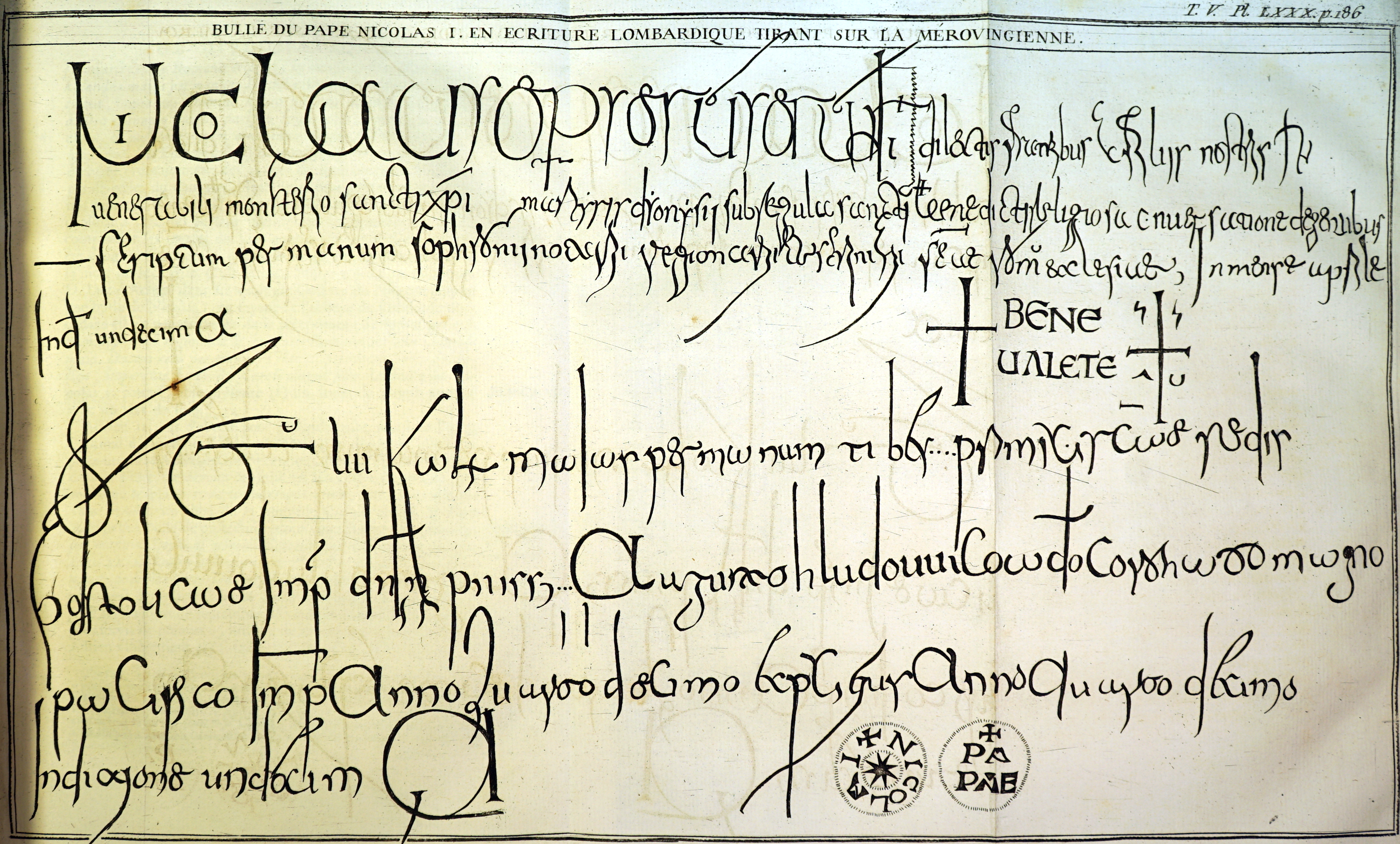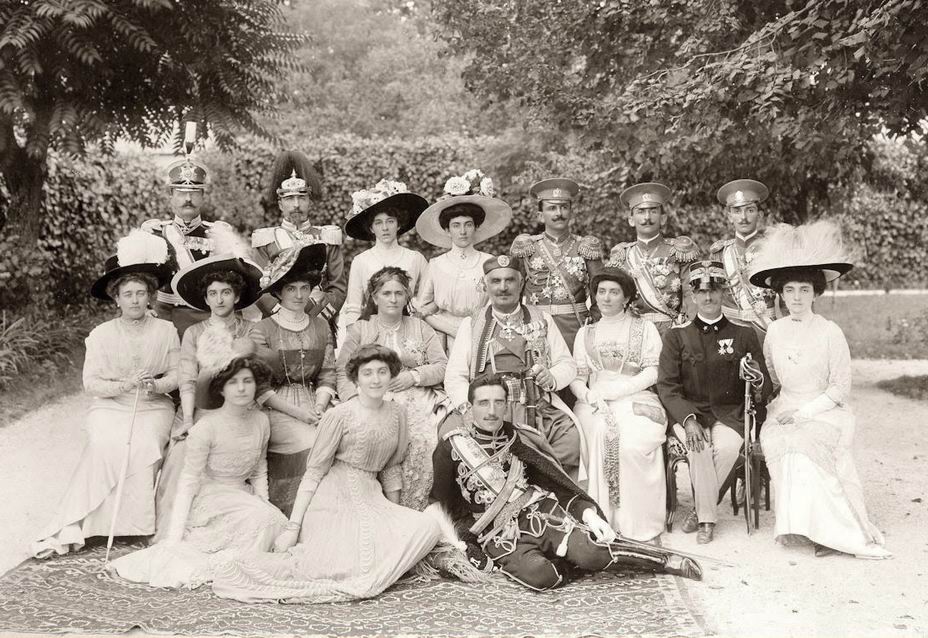|
Nicholas I (pope)
Nicholas I may refer to: * Pope Nicholas I ( 800–867), or Nicholas the Great * Nicholas Mystikos (852–925), Patriarch Nicholas I of Constantinople * Nicholas I (bishop of the Isles) (fl. 1147–1152), Bishop-elect of the Isles * Nicholas I, Lord of Mecklenburg (died 1200) * Nicholas I of Transylvania (died after 1203), voivode of Transylvania * Nicholas I (bishop of Schleswig) (died 1233) * Patriarch Nicholas I of Alexandria, Greek Patriarch of Alexandria between 1210 and 1243 * Nicholas I, Duke of Troppau (c. 1255–1318), natural son of king Ottokar II of Bohemia, became Duke of Troppau in Silesia * Nicholas I, Lord of Rostock (died 1314) * Nicholas I, Count of Tecklenburg (died 1367) * Nicholas I Garai (died 1386), chief governor of Bratislava, palatine to the King of Hungary * Nicholas I of Opole ( 1424–1476) * Nicholas I, Duke of Lorraine (1448–1473) * Nicolaus I Bernoulli (1687–1759); Swiss mathematician * Nicholas I, Prince Esterházy (1714–1790), Hungarian ... [...More Info...] [...Related Items...] OR: [Wikipedia] [Google] [Baidu] |
Pope Nicholas I
Pope Nicholas I (; c. 800 – 13 November 867), called Nicholas the Great, was the bishop of Rome and ruler of the Papal States from 24 April 858 until his death on 13 November 867. He is the last of the three popes listed in the Annuario Pontificio with the title "the Great", alongside Pope Leo I, Leo I and Pope Gregory I, Gregory I. Nicholas is remembered as a consolidator of papal authority, exerting decisive influence on the historical development of the papacy and its position among the Christian nations of Western Europe. Nicholas I asserted that the pope should have suzerainty over all Christians, even royalty, in matters of faith and morals. Nicholas refused King Lothair II of Lotharingia's request for an annulment of his marriage to Teutberga. When a council pronounced in favor of annulment, Nicholas I declared the council deposed, its messengers excommunicated, and its decisions invalid. Despite pressure from the Carolingians, who laid siege to Rome, his decision held ... [...More Info...] [...Related Items...] OR: [Wikipedia] [Google] [Baidu] |
Nicholas I Garai
Nicholas I Garai (, ) (''c.'' 132525 July 1386) was a most influential officeholder under King Louis I and Queen Mary of Hungary. He was ban of Macsó between 1359 and 1375, and palatine from 1375 until his death. He was also ''ispán'' or head of a number of counties over his lifetime. Early life Son of Andrew Garai and his wife (an unknown daughter of Ladislaus Nevnai), Nicholas Garai was born around 1325. His uncle, Pál Garai ('' ban'' of Macsó between 1320 and 1328) was a leading baron under kings Charles I and Louis I of Hungary. Nicholas's career in politics started under Louis I who appointed him to administer the Banate of Macsó in 1359. As ''ban'' of Macsó, Nicholas also became the head of Bács, Baranya, Szerém, Valkó and Veszprém counties. The influential baron Garai launched, in 1369, a punitive expedition against Vladislav I of Wallachia who had rebelled against King Louis I and defeated a royal army led by Nicholas Lackfi, ''voivode'' of Transylva ... [...More Info...] [...Related Items...] OR: [Wikipedia] [Google] [Baidu] |
Niccolò I (other)
Niccolò I may refer to: * Niccolò I d'Este, Marquis of Modena and Ferrara (died 1344), see Duke of Ferrara and of Modena * Niccolò I Ludovisi (1634–1664) * Niccolò I Sanudo (died in 1341) * Niccolò I Trinci (died in 1421) See also * Nicholas I (other) * Niccolò (name) * * * {{hndis, Niccolò 01 ... [...More Info...] [...Related Items...] OR: [Wikipedia] [Google] [Baidu] |
Nicholas I Of Montenegro
Nikola I Petrović-Njegoš ( sr-Cyrl, Никола I Петровић-Његош; – 1 March 1921) was the last monarch of Montenegro from 1860 to 1918, reigning as Principality of Montenegro, prince from 1860 to 1910 and as the country's first and only Kingdom of Montenegro, king from 1910 to 1918. His grandsons were kings Alexander I of Yugoslavia and Umberto II of Italy, among others. Biography Early life Nikola was born in the village of Njeguši, the home of the reigning House of Petrović. He was the son of Mirko Petrović-Njegoš, a celebrated Montenegrin warrior (an elder brother to Danilo I, Prince of Montenegro, Danilo I of Montenegro) and his wife, Anastasija Martinovitch-Orlovitch, Martinovich (1824–1895). After 1696, when the dignity of vladika, or prince-bishop, became hereditary in the Petrović family, the sovereign power had descended from uncle to nephew, the vladikas belonging to the order of the black clergy (i.e., monastic clergy) who are forbidden to marr ... [...More Info...] [...Related Items...] OR: [Wikipedia] [Google] [Baidu] |
Nicholas I Of Russia
Nicholas I, group=pron (Russian language, Russian: Николай I Павлович; – ) was Emperor of Russia, List of rulers of Partitioned Poland#Kings of the Kingdom of Poland, King of Congress Poland, and Grand Duke of Finland from 1825 to 1855. He was the third son of Paul I of Russia, Paul I and younger brother of his predecessor, Alexander I of Russia, Alexander I. Nicholas's thirty-year reign began with the failed Decembrist revolt. He is mainly remembered as a reactionary whose controversial reign was marked by geographical expansion, centralisation of administrative policies, and repression of dissent both in Imperial Russia, Russia and among its neighbors. Nicholas had a happy marriage that produced a large family, with all of their seven children surviving childhood. Nicholas's biographer Nicholas V. Riasanovsky said that he displayed determination, singleness of purpose, and an iron will, along with a powerful sense of duty and a dedication to very hard work. ... [...More Info...] [...Related Items...] OR: [Wikipedia] [Google] [Baidu] |
Nicholas I, Prince Esterházy
Nicholas is a male name, the Anglophone version of an ancient Greek name in use since antiquity, and cognate with the modern Greek , . It originally derived from a combination of two Greek words meaning 'victory' and 'people'. In turn, the name means "victory of the people." The name has been widely used in countries with significant Christian populations, owing in part to the veneration of Saint Nicholas, which became increasingly prominent in Western Europe from the 11th century. Revered as a saint in many Christian denominations, the Eastern Orthodox, Catholic, and Anglican Churches all celebrate Saint Nicholas Day on December 6. In maritime regions throughout Europe, the name and its derivatives have been especially popular, as St Nicholas is considered the protector saint of seafarers. This remains particularly so in Greece, where St Nicholas is the patron saint of the Hellenic Navy. Origins The name derives from the . It is understood to mean 'victory of the people', bei ... [...More Info...] [...Related Items...] OR: [Wikipedia] [Google] [Baidu] |


